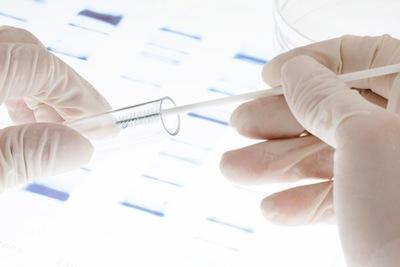

By Sandy Hemphill
Some mothers joke that their extra pounds, stretch marks, even a missing tooth, are souvenirs of pregnancy. Babies leave invisible genetic souvenirs inside, too, according to a growing body of scientific evidence. A recent study from the Netherlands found Y-chromosomes, from baby boys, in every tissue sample they tested from the babys’ mothers. A 2012 study found Y-chromosomes in brain tissue samples from older women, indicating these genetic souvenirs may last forever. Both studies suggest the foreign genetic materials may influence maternal health.
Microchimerism and the Y-Chromosome
When cellular examination of an organism reveals the presence of genetic materials from an entirely different organism, it’s called microchimerism. The term is derived from the Greek Chimera, a mythical beast that was part dragon, part goat, part lion.
When studying fetal microchimerism in humans, researchers look for presence of the Y-chromosome in women who’ve been pregnant with sons. In males, half the chromosomes look like the letter Y and half look like an X. Females have two sets of X-chromosomes but no Ys. It is expected that girl babies also leave their genetic mark in the mother’s bloodstream but mothers of males are used for research; it is much easier to identify a Y-chromosome in an XX-chromosome body than to isolate two different sources of XXs.
Y-Chromosomes in All Maternal Tissue Samples
Researchers at the Leiden University Medical Center in the Netherlands examined tissue samples from various organs of 26 women who had died during pregnancy or within one month of giving birth. All 26 women were pregnant with sons.
Tissue samples revealed DNA evidence of their sons in every organ under studied:
- Lungs contained the highest concentration of Y-chromosomes.
- Spleen contained next highest concentration, followed by kidney, brain, and heart, which contained the lowest concentration.
Previous research revealed this same Y-chromosome distribution pattern in female mice who had sons but this is the first study of its kind conducted on humans.
Y-Chromosomes in Older Mothers’ Brains
At the Fred Hutchinson Cancer Research Center in Seattle, Washington, researchers used brain tissue samples of older women taken during autopsies:
- 26 women exhibited no evidence of neurologic disease.
- 33 had Alzheimer’s disease.
- 63% of them all had their sons’ Y-chromosomes in their brains, in various regions.
- The Alzheimer’s patients had the lowest concentration of Y-chromosomes.
This finding strengthened previous studies that indicate women who have the most children are more likely to develop Alzheimer’s than women who never have children. There is also indication that the more times a woman is pregnant, the younger she’ll be when Alzheimer’s disease is diagnosed.
Possible Maternal Health Links
In addition to the Alzheimer’s link, fetal microchimerism may influence cancer. Some tumors are rich with fetal cells but it is unknown at this time if the fetal cells encourage development of cancer or if they protect against it.
Some additional theories include:
- Fetal microchimeric cells may boost the mother’s immune system to heal wounds quickly. This activity suggests it is the developing fetus that sends immune strengthening genetic materials to the mother to ensure the pregnancy safely reaches full term.
- During human evolution when mothers gave birth to many children who did not survive, it is thought the fetal cell transmission into the mother’s bloodstream may have served to strengthen a frail mother enough to bear a healthy child.
- Fetal cells in breast tissue and milk may be the baby’s way of ensuring an ample food supply.
- Women’s immune systems are invigorated after childbirth in what may be her body’s way of expelling foreign fetal cells and ensuring her long-term survival. This maternal immune-system response to the end of pregnancy may help explain why women with autoimmune diseases such as rheumatoid arthritis often experience relapses after delivering a child.
Some mental health experts would like to see more study on fetal cells in maternal brains. They speculate the fetal cells may influence emotional health, including postpartum depression.
Sources:
- Rijnink, E. C., et al. "Tissue microchimerism is increased during pregnancy: a human autopsy study." Molecular Human Reproduction (2015). Web. 14 Sept. 2015.
- Chan, William F. N., et al. "Male Microchimerism in the Human Female Brain." PLOS | One. PLOS, Sept. 2012. Web. 14 Sept. 2015.
- Zimmer, Carl. "A Pregnancy Souvenir: Cells That Are Not Your Own." The New York Times. The New York Times Company, 10 Sept. 2. Web. 14 Sept. 2015.
